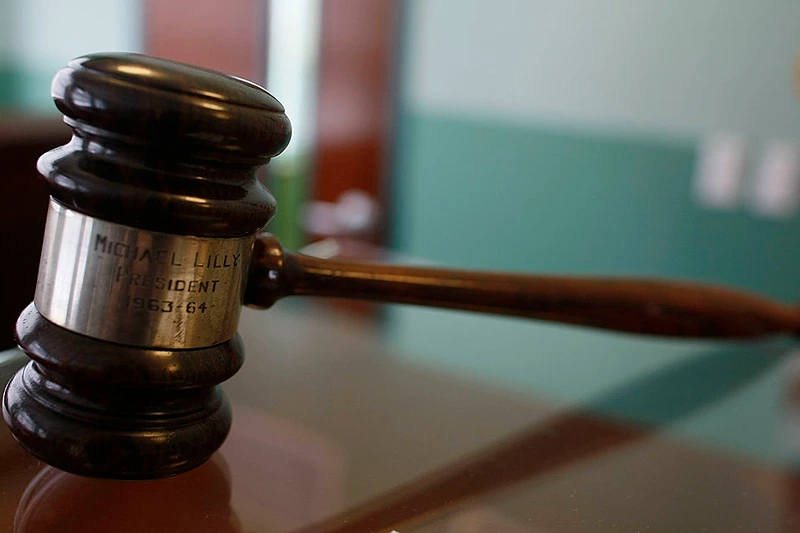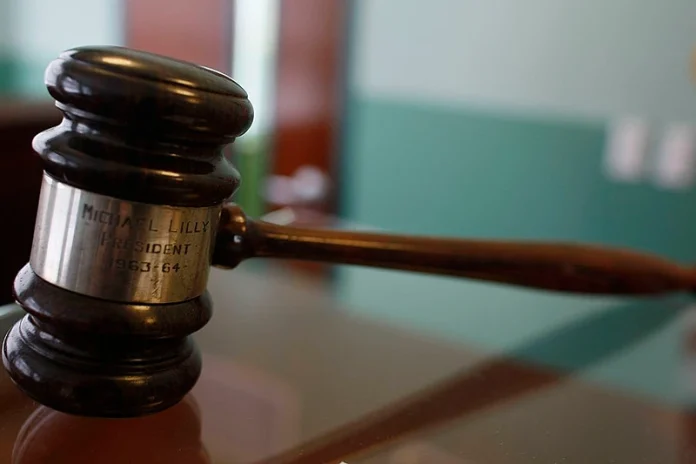
OAN Staff James Meyers
9:52 AM – Friday, October 18, 2024
The Supreme Court declined to block Texas from executing Robert Roberson, a man who insists his conviction for murdering his 2-year-old daughter was not a “shaken baby syndrome.” However, a Texas Supreme Court ruling, which was handed down moments before, paused the scheduled execution that was set to take place.
The 57-year-old was scheduled to be executed by lethal injection on Thursday evening, which would’ve made him the first person in the United States to be put to death over such a certain conviction.
Roberson was sentenced to death in 2003 for the murder of his two-year-old daughter, Nikki Curtis, after a post-mortem examination concluded she died of injuries from abuse.
Roberson and his lawyers have argued that the child died of complications from pneumonia.
However, just 90 minutes before his scheduled execution, a Travis County judge issued a temporary restraining order to stop it from going ahead. This was done so that Roberson could testify in a hearing at the state legislature next week.
The decision came just after a panel of the Texas House of Representatives issued a highly unusual subpoena for Roberson late on Wednesday, in hopes authorities would have to send him to appear at a hearing on October 21st.
Additionally, a bipartisan group of 86 Texas lawmakers, dozens of medical and scientific experts, and attorneys have called for Roberson to be pardoned.
The group argued that the conviction was based on outdated science, before authorities were given a proper understanding of “shaken baby syndrome.”
“In Robert’s case there was no crime and yet we’re about to kill somebody for it in Texas,” best-selling author John Grisham told reporters in September.
“Robert did not harm Nikki in any way,” Roberson’s attorneys wrote to the Supreme Court. “There was no crime — only the tragic natural death of a little girl.”
Roberson’s Supreme Court bid to block his execution rested on a Texas law passed over a decade ago that allows challenges to convictions based on changed science.
“We have reached an ominous moment in terms of the sanctity of law when vast swathes of the public can be more aware of the facts of this case and moved by the injustice it represents than the state judiciary that was charged with adjudicating it,” his attorneys wrote in court filings.
However, the state contended Roberson “falls short” of proving his innocence and at most showed a “battle of the experts” about the evidence.
“He clearly advocates for a new rule — that a state court must provide an explanation for the application of a state procedural rule when a capital state habeas applicant raises a claim of actual innocence based on new scientific and medical evidence. That was not the rule at the time of Roberson’s conviction, and it’s not the rule today,” the Texas attorney general’s office wrote in court filings.
Meanwhile, the Supreme Court does not normally intervene to block executions. During last term, the Supreme Court justices received almost 30 requests to do so but only stopped one.
The Texas Board of Pardons and Paroles on Wednesday voted to not recommend Roberson’s sentence be commuted to life in prison or delay his execution.
A recommendation of that matter was required for Governor Greg Abbott (R-Texas.), to grant clemency, though he retains authority to provide a 30-day reprieve.
Stay informed! Receive breaking news blasts directly to your inbox for free. Subscribe here. https://www.oann.com/alerts


